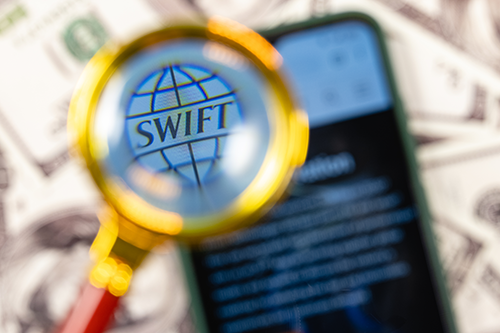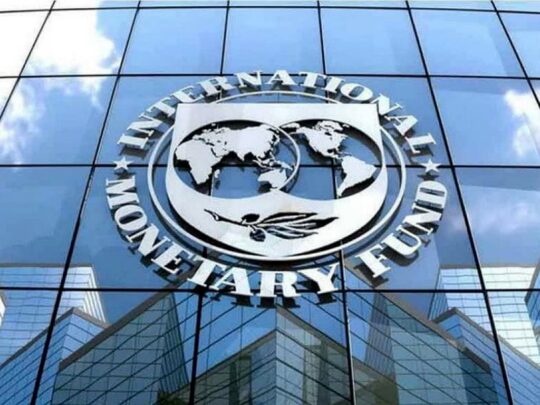Introduction to traditional and digital finance In the global financial system, the lines between traditional and digital finance are becoming increasingly blurred. Traditional finance refers to the conventional banking system, which has been in place for centuries, while digital finance encompasses the various technological advancements that have revolutionized the way we handle money and conduct transactions.
Traditional finance relies heavily on physical currency, brick-and-mortar banks, and centralized institutions to facilitate economic activities. On the other hand, digital finance leverages the power of technology, such as online banking, mobile payments, and cryptocurrencies, to provide faster, more efficient, and borderless financial services.
Table of Contents
The role of the International Monetary Fund (IMF) in global finance
As one of the most influential international organizations, the International Monetary Fund (IMF) plays a crucial role in shaping the global financial landscape. Established in 1944, the IMF’s primary objectives include promoting global monetary cooperation, ensuring financial stability, and facilitating international trade.
In recent years, the IMF has recognized the potential of digital finance and cryptocurrencies to transform the global financial system. It has been actively involved in researching the implications of these technologies and providing guidance to its member countries. The IMF is involved in digital finance because it thinks that embracing technological advancements can increase financial inclusion, promote economic growth, and enhance the effectiveness of financial systems all over the world.
The World Economic Forum (WEF) and its efforts in digital finance
The World Economic Forum (WEF) is another influential organization that has been actively exploring the possibilities of digital finance. As an international organization committed to improving the state of the world, the WEF brings together leaders from various sectors to collaborate on global challenges.
In the realm of digital finance, the WEF has been at the forefront of discussions surrounding blockchain technology, cryptocurrencies, and decentralized finance. Through its initiatives, such as the Global Blockchain Council and the Center for the Fourth Industrial Revolution, the WEF aims to foster dialogue, build partnerships, and develop frameworks that promote the responsible adoption of digital finance.

Swift.org and its impact on global financial transactions
Swift.org, short for the Society for Worldwide Interbank Financial Telecommunication, is a global messaging network that facilitates secure and standardized communication between financial institutions. Swift.org serves as a crucial infrastructure in the global financial system, enabling banks and financial entities to exchange information and conduct transactions.
While Swift.org has traditionally played a central role in facilitating traditional financial transactions, it has also recognized the importance of adapting to the digital revolution. In recent years, Swift.org has been exploring the integration of blockchain technology and cryptocurrencies into its network. By leveraging the advantages of these technologies, Swift.org aims to enhance the speed, security, and transparency of global financial transactions.
The rise of cryptocurrencies and their potential for global integration
Over the past decade, cryptocurrencies have emerged as a disruptive force in the global financial landscape. Bitcoin, the first decentralized cryptocurrency, paved the way for a wave of digital currencies that operate independently of traditional banking systems.
Cryptocurrencies offer numerous advantages, including faster and cheaper cross-border transactions, increased financial inclusivity, and reduced reliance on intermediaries. These digital assets have gained significant attention from individuals, businesses, and governments around the world.
Recognizing the potential of cryptocurrencies, many countries have started exploring their integration into their financial systems. For example, countries like Switzerland, Japan, and Singapore have embraced cryptocurrencies by implementing regulatory frameworks that provide clarity and security for market participants. This proactive approach has attracted crypto-related businesses and investments, positioning these countries as leaders in the global crypto space.
The challenges and barriers to global crypto integration
Despite the growing interest in cryptocurrencies, there are several challenges and barriers that hinder their global integration. One of the primary concerns is the regulatory uncertainty surrounding cryptocurrencies. Governments and regulatory bodies are grappling with how to regulate these digital assets effectively while addressing concerns such as money laundering, fraud, and consumer protection.
Another challenge is the lack of understanding and awareness of cryptocurrencies among the general public. Many people still view cryptocurrencies as speculative assets or tools for illicit activities. Widespread education and awareness campaigns are needed to demystify cryptocurrencies and showcase their potential benefits. The scalability and efficiency of existing blockchain networks need to be addressed to accommodate the growing demand for crypto transactions. The current limitations of blockchain technology, such as slow transaction speeds and high fees, pose challenges for widespread adoption.

Collaborative efforts between the IMF, WEF, and Swift.org to promote crypto integration
Recognizing the transformative potential of cryptocurrencies, the IMF, WEF, and Swift.org have embarked on collaborative efforts to pave the way for global crypto integration. These organizations understand the importance of working together to address the challenges and harness the opportunities presented by digital finance.
The IMF, WEF, and Swift.org have been actively engaging with governments, financial institutions, and industry leaders to foster dialogue, share best practices, and develop frameworks for the responsible adoption of cryptocurrencies. Through conferences, research papers, and policy recommendations, these organizations are playing a crucial role in shaping the regulatory landscape and promoting the benefits of crypto integration.
Case studies of countries embracing digital finance and cryptocurrencies
Several countries have embraced digital finance and cryptocurrencies, serving as case studies for the potential benefits and challenges associated with their integration. Switzerland, often referred to as “Crypto Valley,” has positioned itself as a global leader in blockchain and cryptocurrency innovation. The country has implemented a clear regulatory framework and established a supportive ecosystem that attracts blockchain startups and investments.
Japan, on the other hand, has recognized cryptocurrencies as legal tender and implemented regulations to protect consumers and prevent money laundering. The country’s proactive approach has led to the widespread acceptance of cryptocurrencies, with numerous businesses accepting digital currencies as a form of payment.
Singapore, known for its robust financial system, has also embraced cryptocurrencies. The country has implemented regulations that strike a balance between consumer protection and innovation, fostering the growth of crypto-related businesses and creating a favorable environment for blockchain technology.
These case studies highlight the diverse approaches countries can take to embracing digital finance and cryptocurrencies, providing valuable insights for other nations considering their integration.
The future of global crypto integration and its implications for traditional finance
The integration of cryptocurrencies into the global financial system is an ongoing process with significant implications for traditional finance. As cryptocurrencies gain more mainstream adoption and regulatory frameworks mature, their impact on traditional banking systems and financial institutions will become more pronounced.
One of the potential implications is the disintermediation of traditional banks. Cryptocurrencies enable peer-to-peer transactions without the need for intermediaries, potentially reducing the role of banks in certain financial activities. This shift may require traditional banks to adapt their business models and explore new revenue streams to remain relevant. The adoption of blockchain technology, which underpins cryptocurrencies, has the potential to revolutionize various aspects of traditional finance. Blockchain’s decentralized and transparent nature can enhance security, streamline processes, and reduce costs across financial systems, from asset management to cross-border transactions.
Final Thought: A new era of finance
The integration of cryptocurrencies into the global financial system is ushering in a new era of finance. The collaborative efforts of organizations like the IMF, WEF, and Swift.org are instrumental in shaping the regulatory landscape and fostering responsible adoption.
Countries embracing digital finance and cryptocurrencies serve as valuable case studies for others looking to navigate the opportunities and challenges associated with crypto integration. As technology continues to advance and regulatory frameworks evolve, traditional finance will need to adapt to remain relevant in this rapidly changing landscape.
The future holds immense potential for global crypto integration, bringing benefits such as increased financial inclusivity, improved transaction efficiency, and enhanced security. As we move forward into this new era of finance, it is essential for governments, financial institutions, and individuals to embrace the opportunities presented by digital finance while addressing the challenges to ensure a sustainable and inclusive financial system for all.
CTA: Explore the possibilities of digital finance and cryptocurrencies today and join the revolution shaping the future of global finance. Learn more about the IMF, WEF, and Swift.org’s efforts in promoting crypto integration and stay informed about the latest developments in this exciting field. Start your journey towards a new era of finance today!
Click here to check out this video
🚀Ready to embark on your crypto journey?💰🔒Secure, simple and rewarding – Crypto.com is your gateway to the future of finance!🌐💎Click here 👉👇to begin your adventure in the crypto universe today
💼 Show your crypto flair! 💫 Dive in here 👇 for our special merchandise 🎉
🚨DISCLAIMER🚨
Investingcrypto717.com’s 🌐 content is solely educational🎓. NOT financial advice🙅♂️💼. Do your own research🔍💡, consult a professional before investing💼🤝. You invest at your own risk⚠️💸. #NotFinancialAdvice #InvestingCrypto717🔐🌍




